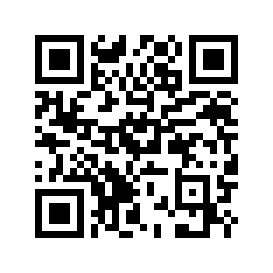Driving on the Information Interstate
Tuesday, July 6, 2004
Using a computer has become practically synonymous with using the Internet. The primary function for most people with their computers is to connect, communicate, and learn. Email is still the number one use of connected computers, often replacing regular mail.
Whether connecting by modem, or via a high-speed connection, connecting you and your computer to the World Wide Web has some implications you need to consider:
- Am I licensed to drive the information superhighway?
- Is my computer safely prepared for the trip?
- Do I know the way to my destination?
Regardless of the computer or connection, it's still you at the keyboard. In many ways similar to getting licensed to drive a car, there are many rules of the road you need to know:
- Don't believe everything you see. A humongous dose of skepticism and critical thinking is essential when reading anything, and this holds especially true in email and web pages. It is so easy to create content, and so easy to look like somebody else, that it is very simple to be fooled. Even within well-established publications online or in print, this attitude is critical to a Christian's survival in this society (1John 4:1). The Bible is the only absolute truth, and everything else must flow from that starting point.
- Make up your mind. Resolve from the beginning that you will not disappoint God. (Dan 1:8; Gen 39:9) From pornography to poor use of time, you do what you want; so you need to work with the Holy Spirit and change your wants (Rom 12:1-2).
- Drive defensively. Your identity is easily faked on the internet, with just a few key bits of information. Your name, your age, your account numbers, your passwords - never give those over email, and very frugally on secure web pages only. Never email or IM with people you don't know, unless you have a business or humanitarian reason to do so, and keep in in that context.
- Never open something you aren't expecting. Even if it looks legit, it most likely is not. Emails and web pages can be carefully crafted to look like the real thing, and then steal your password or flip you into a porn nightmare in an instant. Don't go there.
- Free usually isn't. A free game often will install viruses or computer-killing spyware with it. Free downloads asking for your email can trigger boatloads of junk email. Good judgement and common sense will help you here, because there is indeed good free stuff. By the way, "sharing" games, music, software, and other electronic stuff is not free and is not legal, and is stealing. Fair use is limited to you and nobody else. Like it or not, that's the way it is.
- Don't drive alone. Be accountable within your family, keeping the computer in plain view, not keeping the screen turned away from the door. Encourage surprise inspections to discourage yourself from getting into trouble.
- Check your car before you drive. Be sure you are patched up and ready to go. Most likely you are using Windows on your computer; be sure to visit windowsupdate.microsoft.com on a regular basis, and at least load up the Critical Updates. Windows XP can be configured to download these automatically, and other version can be configured to do so as well.
- Check the fluids. Be sure your anti-virus subscription is paid for and up-to-date (you do have antivirus, don't you? If not, try TrendMicro (preferred), or AVG Free if you really don't want to pay anything). Your best defense is not getting fooled into opening infected files in the first place, but a good, up-to-date antivirus program will protect you in case you do.
- Lock the doors. Viruses infect you through files and email; worms need only that your computer is turned on and connected to the Internet. Keeping up with step 1 (the updates) can help you stay safe from these nasty guys, but what you really need is a firewall This handy piece of software makes your computer invisible on the internet, helping you keep clear of attack. Hands-down the best way to go is ZoneLab's ZoneAlarm - the free version will do all you need.
- Install a bug deflector. Keep popups from nabbing your attention, or trying to fool you into downloading junk: install Google's toolbar for Internet Explorer. This way you get quick access to good search, and all popups blocked.
- Consider trading in your car. This is drastic, but it helps. Stop using Internet Explorer, and use Mozilla (or Firefox) instead. No popups, no major security flaws in the design, and they're fast and free. The US government has made waves recently by recommending this action, because of nonstop problems with Internet Explorer.
- Know your destination. Get online with a purpose. If you want to take a scenic route, plan the extra time, but plan is the key word here. Idle browsing can get you quickly into hours of wasted time away from your family as easily as TV does.
- Take a good map. Get recommendations from people you trust, people you know. Some stranger on the web or in email should be treated very carefully indeed.
- Bill Lovegroves' Christians in Cyberspace
- NPR/Kaiser/Harvard Technology Survey
- Windows Update - http://windowsupdate.microsoft.com/
- TrendMicros Antivirus - http://www.antivirus.com/
- AVG Antivirus - http://www.grisoft.com/
- ZoneAlarm Firewall - http://www.zonelabs.com/
- Google Toolbar - http://toolbar.google.com/
- Mozilla Web Browser - http://www.mozilla.org/
- David's Good Stuff - http://www.larocque.net/smartcomputing/freestuffCD.htm
0 Comments
Comments are closed for this article.
